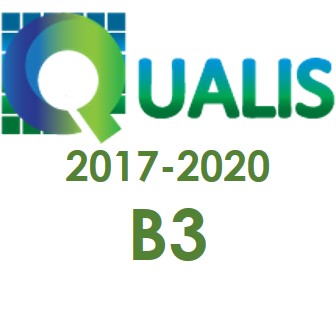O PAPEL DO PROCESSO METONÍMICO NO CONTEXTO DA LINGUÍSTICA COGNITIVA NA CRIAÇÃO DE CATEGORIAS CONCEITUAIS
DOI:
https://doi.org/10.22481/folio.v13i2.9367Keywords:
Categorização; Linguística Cognitiva; MetonímiaAbstract
This article proposes a theoretical discussion about the role played by the metonymic process in the context of human cognition in the conceptual construction of ordinary categories. The entire debate was built with the aim of ratifying the argument built by scholars at the heart of Cognitive Linguistics, namely, that metonymy, in addition to being a basic process of human categorization, is fundamental and essential in the creation of categories. Therefore, based on a bibliographic methodology, with a corpus consisting of common expressions, we reach the conclusion that the metonymic process has its value underestimated because it is confused with another important cognitive process, the metaphor.
Downloads
References
AL-SHARAFI, A. G. M. Textual Metonymy: a semiotic Approach. New York: Palgrave/ MacMillan, 2004.
ARISTÓTELES. Poética. [Tradução de Eudoro de Souza]. São Paulo: Nova Cultura, 1991. p. 245-285.
BARCELONA, A. The cognitive theory of metaphor and metonymy. In: BARCELONA, A. (Ed.). Metaphor and metonymy at the crossroads: a cogntive perspective. Berlin: Mouton de Gruyter, 2003. p.1-28.
COULSON, S.; OAKLEY, T. Metonymy and conceptual blending. Disponível em: Acesso em: 1dez. 2013.
CROFT, W. The Role of domains in the interpretation of metaphors and metonymies. In: DIRVEN, R,; PÖRINGS, R. (Eds). Metaphor and metonymy in comparison and contrast. Berlin, New York: Mouton de Gruyter, 2003. p. 161- 205.
DIRVEN, R. Metonymy and metaphor: Different mental strategies of conceptualization. In: DIRVEN, R.; PÖRINGS, R. (Eds). Metaphor and metonymy in comparison and contrast. Berlin, New York: Mouton de Gruyter, 2003. p. 75-111.
ECO, U. Semiotics and the Philosophy of Language. London: Macmillan, 1984.
FAUCONNIER, G.; TURNER, M. The way we thing: conceptual blending and the mind’s hidden complexities. New York: Basic Books, 2002.
FELTES, H. P. M. Semântica Cognitiva: ilhas, pontes e teias. Porto Alegre: EDIPUCRS, 2007.
FILLMORE, C. Semântica de Frames. Cadernos de tradução, Porto Alegre, n. 25, p. 25-54, 2009.
GIBBS, R. W. Jr. Cognitive Linguistics and metaphor research: past successes, skeptical questions, futures challenges. Delta, São Paulo, v. 22, 2006, p. 1-20. Disponível em: www.scielo.org/cgi-bin/wxis/iah. Acesso em 19 nov. 2008.
GIBBS, R. Speaking and Thinking with Metonymy. In: Panther, K. U.; Radden, G. (Eds.). Metonymy in Language and Thought. Amsterdam: Benjamins, 1999. p. 61-76.
JAKOBSON, R. The metaphoric and metonymic poles. In: DIRVEN, R.; PÖRINGS, R. (Eds). Metaphor and metonymy in comparison and contrast. Berlin, New York: Mouton de Gruyter, 2003. p. 41-47.
JAKOBSON, R. The metaphoric and metonymic poles. In: JAKOBSON, R.; HALLE, M. (Eds). Fundamentals of language. Vol. 2. Paris: Mouton, 1956. p. 90-96.
LAKOFF, G. Women, fire and dangerous things. Chicago: University of Chicago Press, 1987.
LAKOFF, G.; JOHNSON, M. Metaphors we live by. Chicago: The University of Chicago Press, 1980.
LAKOFF, G.; JOHNSON, M. Philosophy in the flesh: the embodied mind and its challenge to western thought. New York: Basic Books, 1999.
LAKOFF, G.; JOHNSON, M. Metaphors we live by. 2.ed. Chicago: The University of Chicago Press, 2003.
LANGANKER, R. Reference-point constructions. Cognitive Linguistics 4, 1993. p. 1-38.
PAIVA, V. L. M. O. A Metonímia como processo fractal multimodal. Veredas, v. 01, n. atemática, p. 07-19, 2010. Disponível em: . Acesso em: 10 set. 2010.
PAIVA, V. L. M. O.; NASCIMENTO, M. Processamento metafórico e metonímico na produção de texto/sentido: um exemplo de compressão fractal. In: SILVEIRA, E. M. (Ed.). As bordas da linguagem. Uberlândia: EDUFU, 2011. p.351-373
PAIVA, V. L. M. O. O processamento metonímico/metafórico à luz da teoria do caos/complexidade. Revista Portuguesa de Humanidades-Estudos Linguísticos, Braga, v.15, n.1, p.51-66, 2012.
RADDEN, G.; KÖVECSES, Z. Towards a theory of metonymy. In: PANTHER, K. U.; RADDEN, G. (Eds). Metonymy in Language and Thought. Amsterdam: Benjamins, 1999. p. 17-59
RADDEN, G.; PANTHER, K. U. Metonymy in Language and Thought. In: PANTHER, K. U.; RADDEN, G. (Eds). Amsterdam: Benjamins, 1999. p. 01-14.
ROSCH, E. Cognitive representations of semantic categories. Journal of Experimental Psychology: General, v. 104, n. 03, p. l92-233, set. 1975.
ROSCH, E. On the internal structure of perceptual and semantic categories. In: MORE, T. E. Cognitive Development and the Acquisition of Language. New York: Academic Press, 1973. p.111-144.
ROSCH, E. e MERVIS, C. B. Family Resemblances: studies in the internal structures of categories. Cognitive Psychology. v. 7, n. 4, p.573-605, Out. 1975.
TOMASELLO, M. Constructing a language: a usage-based theory of language acquisition. Cambridge: Harvard University Press, 2003.
Downloads
Published
How to Cite
Issue
Section
License
Copyright (c) 2022 fólio - Revista de Letras

This work is licensed under a Creative Commons Attribution-NonCommercial 4.0 International License.












